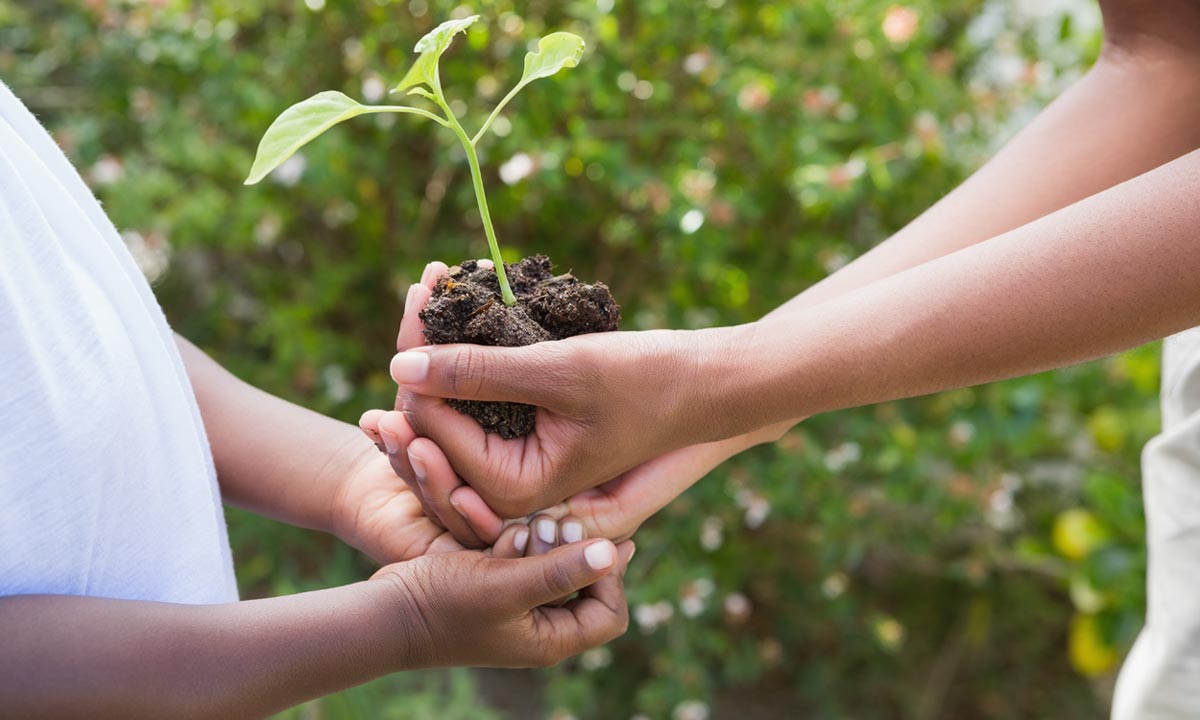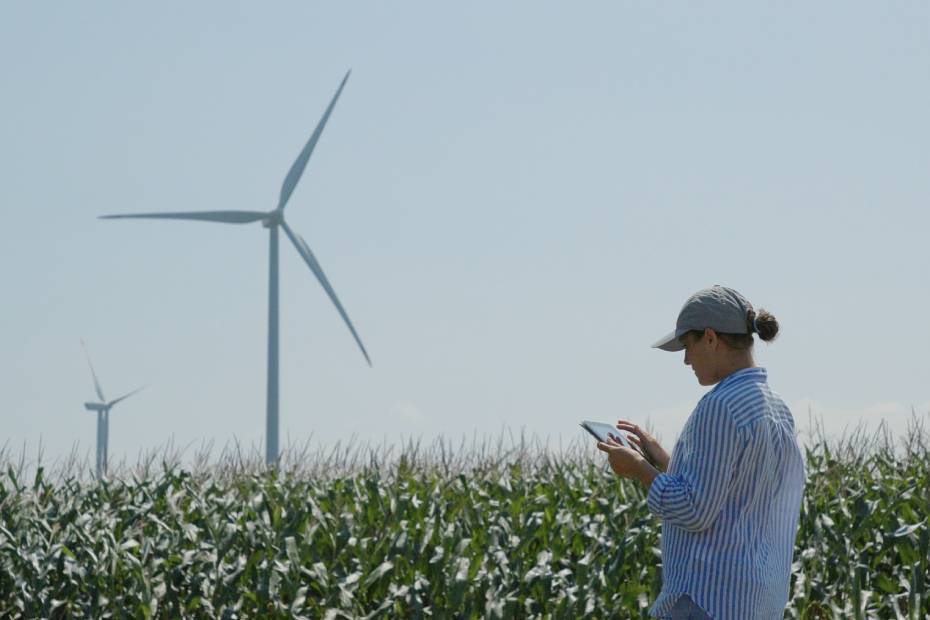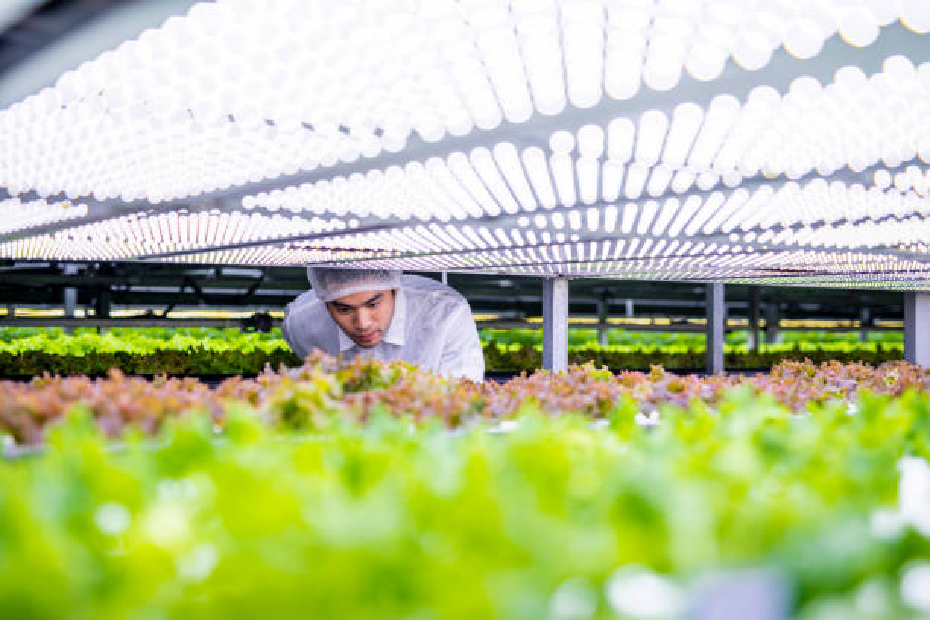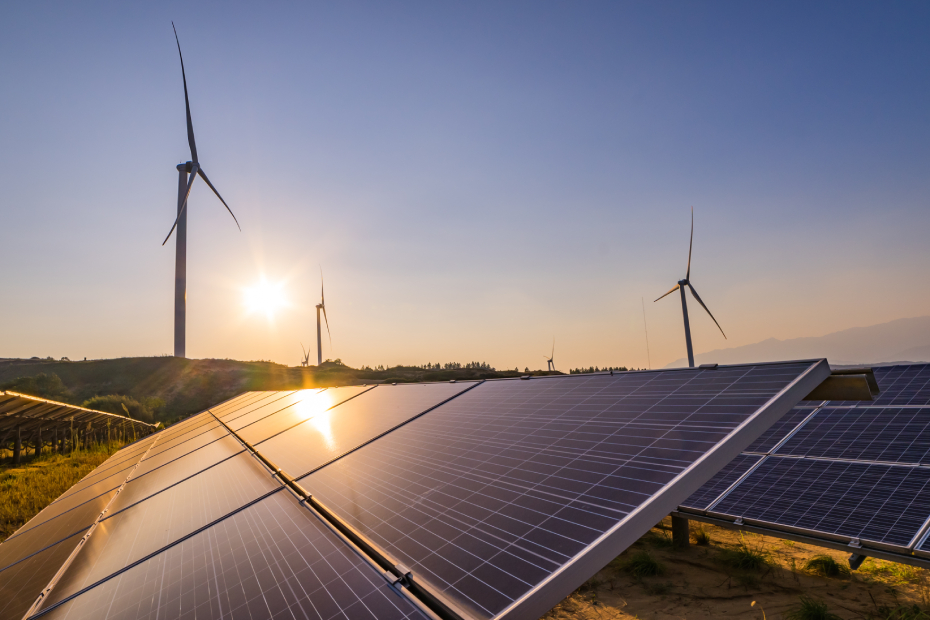Jyoti Stephens grew up with the mantra to “leave the earth better than you found it.” It’s a belief passed down from her grandfather and is the mission of her family’s certified organic food company, Nature’s Path.
“Respecting the land and giving back to the community were a part of how we grew up,” says Stephens, vice-president of mission and strategy at the Richmond, B.C.-based company. Known for its focus on sustainability, the company also prioritizes ethical sourcing, energy efficiency, waste reduction, community engagement, and eco-friendly packaging alternatives.
Stephens has fond memories of working in her parent’s garden, growing—and eating—the fresh fruit and vegetables and learning about the soil’s regeneration. It’s a way of living (and doing business) that Stephens is now passing on to her young daughter in their home garden and during dinner-table conversations. She encourages all parents to have conversations with their kids about ways they can live more sustainably.
“Sustainability thinking is about systems thinking,” says Stephens. “You don’t want to overwhelm them with complexities, but there are ways to get your kids to think about all of the things it takes to make, enjoy and sustain the life we have well into the future.”
Climate change a key concern for parents
While Stephens, her family and their business are doing their part to protect the environment, not enough are, which worries her and other parents when it comes to their children’s future.
“I’m gravely concerned about the impact that the warming planet will have on the next generation,” Stephens says.
She’s not alone. About three-quarters of next-generation, high-net-worth parents believe their children will have a more challenging life than they have, with climate change being a key concern, according to the Shaping Tomorrow, Today report. The 2020 research from RBC focuses on the next generation of international leading enterprising families. More than half (56 percent) of respondents also believe it’s important for children to learn social and environmental responsibility at home.
“There are two big trends that frighten me the most—climate change and the growing inequality gap between the haves and have nots,” said one female Generation X-aged survey respondent. “At some point in my children’s generation, if we continue down our current path, those two elements will cross —and I don’t think even wealth will be able to help you there.”
Another male Baby Boomer said he too worries about environmental issues. “I feel like the next generation is going to be faced with issues that we have not had to deal with in our family; at least in my generation,” he said.
Investors paying more attention to sustainability
Sustainability is also becoming top-of-mind among investors, with a growing number focused on environmental, social and governance (ESG) factors when choosing where to put their assets.
Globally, 75 percent of institutional investors integrate ESG into their investment approach and decision-making, according to the 2020 Global Responsible Investment Survey. The annual survey from RBC Global Asset Management also shows 84 percent of respondents believe ESG-integrated portfolios will perform as well or better than non-ESG-integrated investments.
Melanie Adams, vice-president and head of corporate governance and responsible investment at RBC Global Asset Management, says ESG factors are critical to how her team invests today to achieve risk-adjusted long-term returns.
“For many, it’s about making the world a better place, but for investors, it’s also very much about the performance of the investment,” Adams says. “If you’re not looking at material ESG factors, you’re not seeing everything you should be about the investment.”
The focus also comes as a growing number of surveys suggest younger investors, such as Millennials and Generation Z, want their money invested in responsible companies, Adams notes.
“There will be a wealth transfer, and the next phase of investors care about these issues. We need to ensure we’re able to satisfy their investment requirements,” she says.
Companies also have a crucial role to play in thinking about their ESG strategies, Adams says, including climate change and adapting to the shift to a low-carbon economy.
“Companies that think about these things will be more resilient and are likely to perform better over the long run,” she says.
Aligning your purchasing power with your values
Consumers can also drive change by being strategic about what they buy, choosing companies and brands that promote sustainability. The trend, known as conscious consumerism, is something entrepreneur Jane Mosbacher Morris enables through her company, TO THE MARKET, which connects businesses and consumers to ethically made products from around the world.
It’s a venture-backed business with impact at its core, with more than 200 suppliers in over 40 countries. They use technology to help retailers and brands provide transparency in the supply chain to source and manufacture socially and environmentally responsible products.
“We’re on a mission to change the way retail manufacturing is done to create a better outcome for people, the planet, and ultimately, better business,” Morris says of the company she founded four years ago after working in humanitarianism for government and a prominent think-tank in Washington, D.C.
Morris worked in counterterrorism at the U.S. Department of State, where she was first exposed to vulnerable populations, in particular women. It was on a trip to Kolkata, India, while working as the director of humanitarian action for the McCain Institute for International Leadership, that she came up with the idea for TO THE MARKET.
“It was a prime opportunity for me to engage in an industry where you had not only a social and environmental challenge worthy of fixing but also a market-driven opportunity to make a change,” she says. “I thought I could have a bigger impact on the population I felt passionate about serving through the private sector if I leveraged market forces.”
Morris is also the author of Buy the Change You Want to See: Use Your Purchasing Power to Make the World a Better Place, released in 2019, which helps consumers make a greater social impact through everyday purchases. Morris says parents can use the book to help teach their children—and better inform themselves—about being conscious consumers.
“It’s about aligning your purchasing power with your values,” says Morris, which could include climate change or other areas such as the economic empowerment of women.
Adams says parents can teach their kids the many different ways they can help to make the world a better place, including “the power of their wallets”.
“Have a conversation with your kids,” says Adams. “There’s an opportunity to be thoughtful about how you invest your money. It can also be fun.”
As parents think about the legacy they want to leave, educating the next generation around sustainability can help leave a lasting impact on generations to come.
This article is intended as general information only and is not to be relied upon as constituting legal, financial or other professional advice. A professional advisor should be consulted regarding your specific situation. Information presented is believed to be factual and up-to-date but we do not guarantee its accuracy and it should not be regarded as a complete analysis of the subjects discussed. All expressions of opinion reflect the judgment of the authors as of the date of publication and are subject to change. No endorsement of any third parties or their advice, opinions, information, products or services is expressly given or implied by Royal Bank of Canada or any of its affiliates.



















